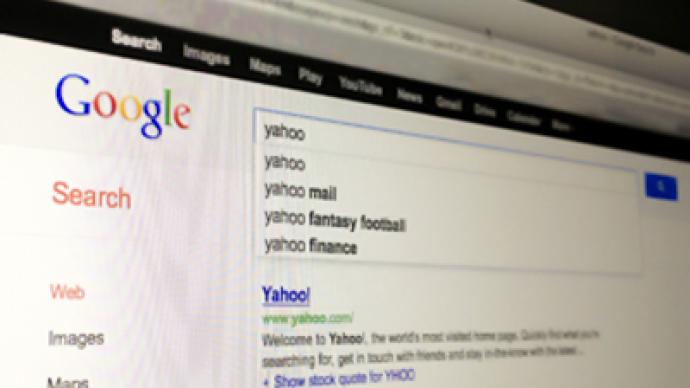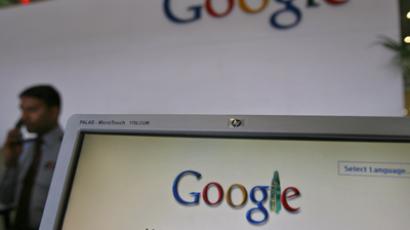Feds could put Google on the stand for search result trickery

Though Google Inc. denies claims that it puts competitors low in its search results, the US Federal Trade Commission isn’t buying it. According to FTC bosses, the search giant could be on trial for anti-competitive behavior as early as this winter.
After a year of investigating Google’s search result tactics, four out of five FTC commissioners now believe that Google is illegally harming its rivals by intentionally ranking them lower in search results. The commissioners claim that Google is using its dominance to maintain its supremacy among search engines, Reuters reports.Placing Google products and services at the top of search results would bring in more revenue. A study by Chitika Insights found that typically the first Google search result yields 34.4 percent of clicks, the second spot receives 16.9 percent, the third receives 11.4 percent and all results below that receive percentages in the single digits. Furthermore, websites appearing lower in search results are sometimes forced to buy advertising space from Google to attract more attention, thus providing the search giant with even more profit.A report by comScore found that 66.7 percent of Internet searches were conducted through Google, with Microsoft Sites (Bing) following at 15.9 percent and Yahoo! at 12.2 percent. All other search engines combined hosted less than six percent of all Internet searches, a testament to Google’s dominance.Two FTC sources interviewed by Reuters, who requested anonymity to protect professional relationships, said they anticipate a decision on how to proceed with the search giant in November or December – and this would likely be an antitrust lawsuit. Such a case would be the largest such case and investigation of a corporation since the federal case against Microsoft in the 1990s.The commission is currently preparing a team to take Google to court, in case a lawsuit is indeed filed. A suit would require at least three of the five commissioners to approve the action. In September, FTC Chairman Jon Leibowitz said a final decision regarding the case would be made before the end of the year.Google denies manipulating search results, with company spokesperson Niki Fenwick saying she would be pleased to answer any questions regulators may have.“May I simply say that I can assure you we’ve not cooked anything,” Google Executive Chairman Eric Schmidt said during a congressional hearing in September 2011.But Google’s methods are not just being questioned in the US. European Union competition commissioner Joaquín Almunia said in a speech last month that Google is “using its dominance in online search to foreclose rival specialized search engines and search advertisers.” European authorities are in the midst of a similar antitrust investigation into Google's search result tactics.If Google faces a US lawsuit, it may be forced to accept a settlement agreement with the FTC or face a costly legal battle that could be drawn out for months – or perhaps, as in the case with Microsoft, years.














